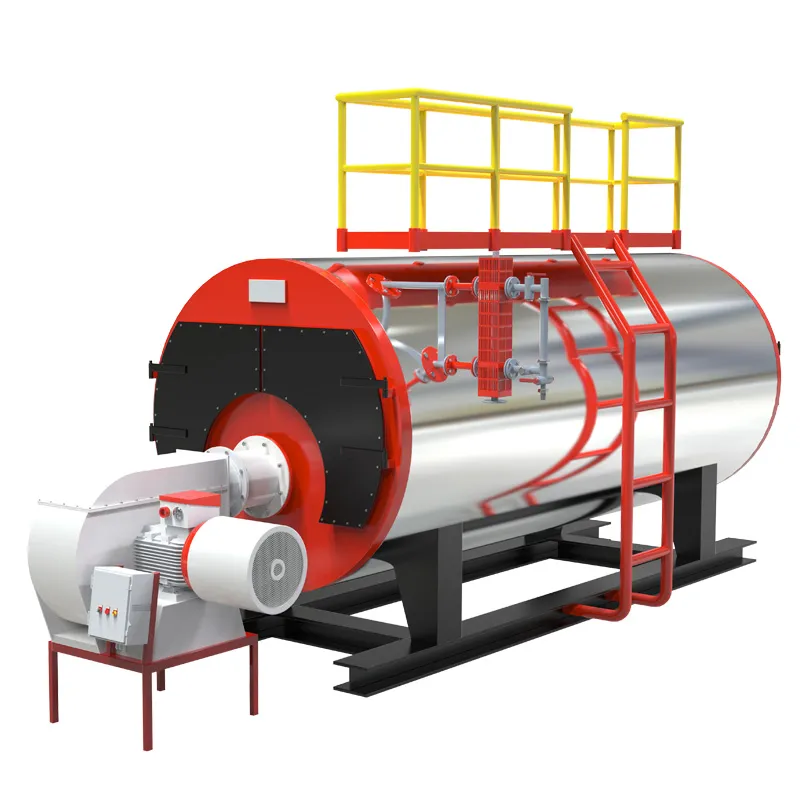
Aug. . 11, 2024 03:34 Back to list
Innovative Approaches to Hot Water Boiler Design for Enhanced Efficiency and Performance Optimization
Hot Water Boiler Design An Overview
Hot water boilers play a crucial role in various applications, ranging from residential heating systems to large-scale industrial processes. Their primary function is to generate hot water for heating purposes, either through direct heating or using a heat exchanger. Understanding the principles of hot water boiler design is essential for ensuring efficiency, safety, and reliability in hot water generation.
Key Components of Hot Water Boilers
A typical hot water boiler consists of several essential components, each contributing to the system's overall efficiency and functionality
1. Heat Exchanger This is the core component where heat transfer occurs. It can be designed in various configurations, such as shell-and-tube or plate type, depending on the application requirements. The efficiency of the heat exchanger is vital, as it directly impacts the boiler's performance.
2. Burner The burner is responsible for igniting the fuel (gas, oil, or solid fuel) to produce heat. Modern burners are designed to optimize combustion efficiency by controlling the air-fuel mixture, thus reducing emissions and maximizing energy use.
3. Control Systems Advanced control systems are integral to modern hot water boilers. They monitor and adjust operating parameters, such as temperature and pressure, ensuring consistent performance while enhancing safety features. These systems can be manually operated or fully automated, depending on the complexity required.
4. Pumps Circulation pumps are used to move hot water from the boiler to the heating apparatus. The design of these pumps is crucial for maintaining a consistent flow rate and pressure, ensuring that heating systems operate effectively.
5. Insulation Proper insulation reduces heat loss from the boiler, improving efficiency and minimizing operational costs. Insulation materials and techniques must be carefully chosen based on operating temperatures and environmental conditions.
hot water boiler design

Design Considerations
When designing a hot water boiler, several factors must be taken into account to ensure optimal performance
1. Capacity Sizing It is critical to size the boiler correctly based on the anticipated demand for hot water. Oversized boilers can lead to increased fuel consumption and reduced efficiency, while undersized units may fail to meet heating requirements.
2. Fuel Source The choice of fuel is an important consideration in the design process. Different fuels have varying combustion efficiencies, emissions profiles, and availability. The design must accommodate the specific fuel type, including appropriate burners and combustion controls.
3. Safety Features Safety is paramount in boiler design. Incorporating features such as pressure relief valves, flame sensors, and low-water cutoffs are essential to prevent accidents and ensure safe operation under varying conditions.
4. Regulatory Compliance Hot water boiler designs must comply with local and national regulations regarding efficiency, emissions, and safety. Understanding these regulations early in the design process can prevent costly modifications later on.
5. Maintenance Accessibility A well-designed boiler should have easy access to components that require regular maintenance, such as filters, burners, and heat exchangers. This accessibility reduces downtime and ensures that the boiler operates efficiently over its lifespan.
Conclusion
The design of hot water boilers is a complex process that requires a thorough understanding of thermodynamic principles, engineering design, and operational requirements. By focusing on key components, design considerations, and regulatory compliance, engineers can create efficient and reliable hot water systems that meet the diverse needs of residential, commercial, and industrial applications. As technology continues to advance, the potential for improved efficiency and reduced environmental impact in hot water boiler design remains promising.
-
How to Maintain a Steam Boiler Expert Tips for Efficiency & Longevity
NewsApr.29,2025
-
Professional Steam Boiler Service AB Expert Maintenance & Repair
NewsApr.29,2025
-
Hot Water Steam Boilers Efficient Heating Solutions & Expert Tips
NewsApr.29,2025
-
Hot Water Boiler Capacity Calculation Guide Efficient Design Tips
NewsApr.28,2025
-
How to Drain a Steam Boiler Step-by-Step Safety Guide
NewsApr.28,2025
-
How to Install a Hot Water Boiler Optimal Pressure & Efficiency Guide
NewsApr.28,2025
Related PRODUCTS






















